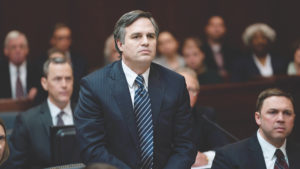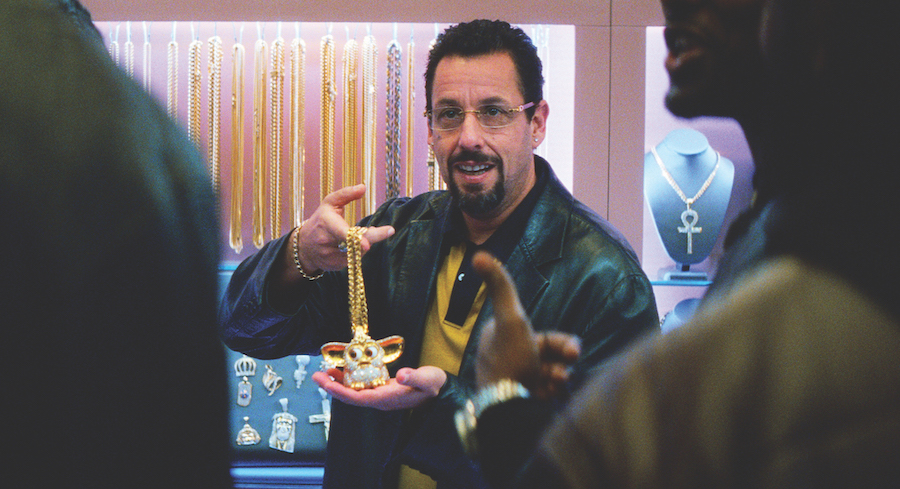For devoted movie buffs, the home screen has always been a bit of a compromise — films made for the big screen, shared in the dark with strangers, seem less powerful when remote-controlled. But as a trade-off for slowing down the coronavirus, watching movies at home is a fair deal. And for the time being, all films are being released online, skipping theater dates. I just hope we’ll be able to see movies in our local cinemas sooner or later, and that the crisis doesn’t kill the business and the habit of theatrical moviegoing.

Among the films recently released for streaming and on disk is The Good Liar, a nasty little con game that primarily serves as a vehicle for Ian McKellen and Helen Mirren. These two beloved British thespians play widowed elderly internet daters, who lie as most internet daters do, yet have even more sinister agendas. McKellen is a financial schemer who hopes to walk away with Mirren’s nest egg, and Mirren, unbeknownst to McKellen and the audience, knows something about McKellen’s dark wartime past. On the surface, they play-act a consoling affection for each other, as McKellen moves into Mirren’s dull suburban abode. But behind the scenes, things are quite different. McKellen runs around London, ripping off investors and covering his tracks, and Mirren, with the help of her grandson (Russell Tovey), lulls McKellen into a trap of his own making.
It’s a clever, but not really clever enough, screenplay (by Jeffrey Hatcher), and director Bill Condon, an Oscar winner for Gods and Monsters (which starred McKellen 22 years ago), tries to make the most of it. Though his efforts mostly pay off — the film’s stylish storytelling keeps things moving along with just the right tone of suspenseful fakery — by the end, when all the actual truths are recapitulated, it has little impact or moral heft. Even so, as a distraction, it’s effortless, and you’ll probably have as much fun with the characters as the actors seem to be having themselves.
Sounding a far more earnest note is Todd Haynes’s Dark Waters. Mark Ruffalo stars as real-life corporate lawyer Rob Bilott, who spent 20 years litigating a case against DuPont for dumping the hazardous chemicals used in creating Teflon in Parkersburg, W.Va.

On the surface, Dark Waters might seem like a typical muckraking drama, à la Erin Brockovich, in which wealthy, liberal Hollywood talents expose the evils of corporate corruption imposed with impunity on powerless working people. And, to some extent, that is a claim as undeniable as the corporate malfeasance depicted. But Todd Haynes is no ordinary Hollywood hand. He has evolved quite a bit from his indie maverick past, which was launched by his Barbie doll debut, Superstar: The Karen Carpenter Story, and climaxed with his experimental Dylan tribute, I’m Not There. Haynes is also known for his odes to golden-era Hollywood, such as Far From Heaven, which distills the classic women’s weepies of Douglas Sirk, and his remake of Mildred Pierce for HBO. He has brought a fair measure of artistic insight and sensitivity to Dark Waters, which elevates the material beyond the usual anti-corporate crusade.
Bilott, for example, is a fully fleshed-out human being, and a hero by happenstance. The legal process is not soaked for its dramatic twists, but rather portrayed as a protracted, procedural mess. Which is how the victims of DuPont’s crimes experienced it: the farmer whose cows died, the townspeople who got cancer, even Bilott’s family, who resented his devotion to a cause for which they all had to sacrifice.
As a result, the movie doesn’t feel like a self-congratulatory victory lap, despite Bilott’s limited success. The suit continues. And DuPont is still largely unscathed, though exposed. Heroism, and justice, remain largely incomplete and mysterious. Dark Waters, indeed.
Adam Sandler stars as a gambling-addicted Manhattan jewelry dealer in Uncut Gems.

Also released recently for streaming and on disk is Uncut Gems, an abrasive, driven, nihilistic portrait of addiction and self-destruction, starring Adam Sandler as Howard Ratner, a jewelry dealer on 47th Street in Manhattan. The movie was written and directed by the Safdie brothers, Benny and Josh, and Martin Scorsese is an executive producer, which is telling: Uncut Gems is the second movie of 2019 to be based on early Scorsese style and subjects. As much as Joker is a pastiche of Taxi Driver and The King of Comedy, Uncut Gems is a riff on Mean Streets.
Sandler, as Ratner the jeweler, is a Long Island family man — a nouveau riche, basketball-mad Jewish hotshot whose marriage and business are coming undone because of his gambling. He’s being chased by gangsters for his debts while he wheels and deals his bling with such basketball stars as Kevin Garnett (who plays himself). He imports a rock laden with uncut gems in the hopes of making a killing with it at auction. Instead, it becomes a kind of fetish stone, which only fuels his risk-taking to extremes.
The movie is paced as if it were high on cocaine, which recalls Scorsese’s earlier work, and it’s relentless, ending less with a bang than a whimper. Sandler is revelatory. There’s not a winking moment of humor in his performance, and he’s onscreen throughout. It’s hard to have any sympathy for Ratner, and it was a ballsy choice for Sandler to play him.
Watching Uncut Gems is like being a passenger in a car being driven dangerously fast with the radio playing too loud. You can’t wait until it ends, but you’ll never forget it. Which may not be the kind of escape from the pandemic you were seeking. But somehow, it seems appropriate.
